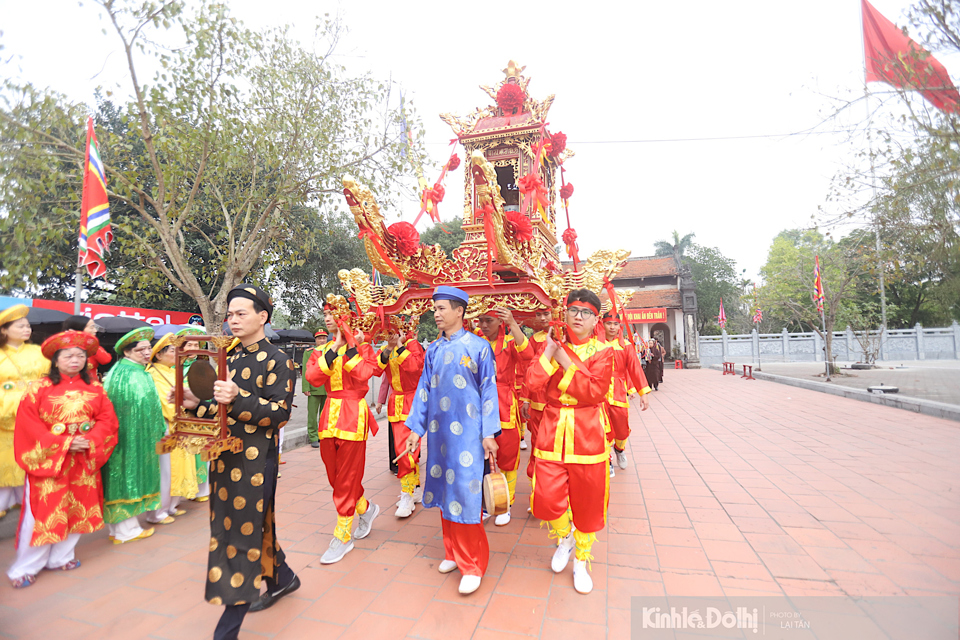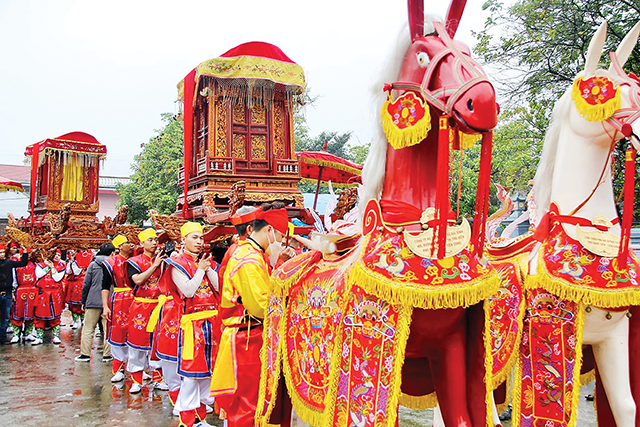Festivals require many compulsory rituals, which are carried out in a strict order from the preparation to the ending of a festival. In general, a festival has the following rituals:
Statue washing rite is performed at mid-night of the day before the festival. This rite is preceded by a ceremony of water procession in some places. A ceremony to inform gods must be held prior to this statue-washing rite.
Next is the rite of wearing hats and costumes for gods’ statues or putting them in their worshipping tablets if gods have no statue. After that, the statues of gods (or worshipping tablets, even costumes) are put in the palanquin, ready for the procession on the opening of the festival.
Procession ritual: A festival often includes the procession of gods, tutelary gods, royal order and water, of which the first and fourth rite are most popular. The content and meaning of the procession ritual vary from festival to festival with regard to the object of procession, its organization and participants. The procession of gods and water processions are usually carried out prior to the opening and closing ceremonies of the festival accordingly.

Festivals, as mentioned above, are to honour holy figures, i.e. gods or divinities to whose temples and shrines are dedicated. Very often a festival takes place in the courtyard of the village’s communal house which is spacious and convenient for the conduct of liturgical processes and rejoicing activities. As such, the ritual of god procession is held along the route from their places of worship to the place of liturgy. At the end of the festival, another procession will bring gods’ statues back to their temples. After the procession ritual are the ritual of presenting offerings to gods and the opening of the festival. In many festivals, a procession of the oration dedicated to gods is held every day. Each day a different oration is used.
In traditional festivals it is required that participants in the procession ritual must be men above 18 years old who are selected carefully on the basis of their physical strength and good ethics. Women can join the procession group in such festivals as Phu Day or Ha Loi which dedicate to goddesses. Anyone who is chosen to become a member of the procession group must consider it his/her own honour and his/her family.

On its way, each procession bears its own symbol. People beat drums and gongs (formerly firecrackers were used) to signal the departure of the procession.
On the closing day of the festival, a final ritual is held with all processes required.
